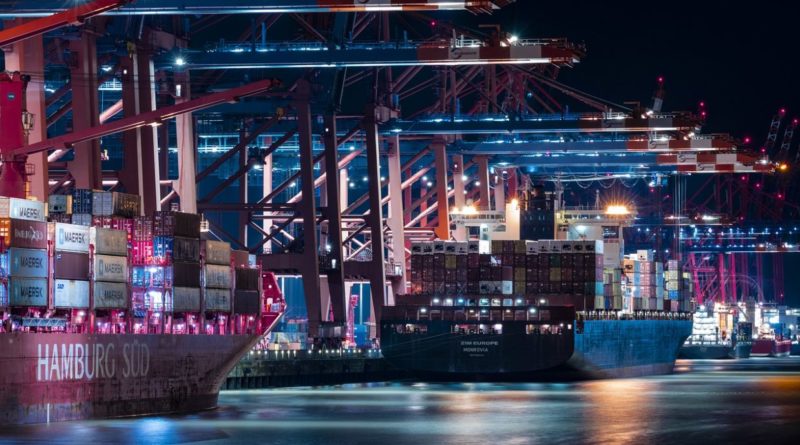Russia Ukraine conflict to bring more disruption to container supply
A specialist in the tracking, buying and selling of containers has outlined how the conflict between Russia and Ukraine will further stretch strained supply and circulation of containers globally and the news is, perhaps predictably, not good for businesses.
In a new report, Container xChange co-founder and CEO, Christian Roeloffs says: “We expect this awful war to add to the stretched nature of global container supply chains, bringing yet more inflation, disruption and delays.“
The assessment comes just as Chinese New Year disruptions had eased through February, a factor that had seen prices ease marginally. Bottlenecks previously reported persist, including special mention for a significant trucking backlog in the UK, which was ranked the slowest globally to turn goods around at the docks. As is to be expected in times of war, commodity prices have soared with headline data from the past week detailed here.
Roeloffs went into greater detail on the knock-on effects of conflict, writing: “For our customers this is what we know about the current situation and what we expect will be the impact on container availability on various trades.
“Parts of the Black Sea and Sea of Azov are now dangerous or unpassable. There have been missile attacks on vessels and ship arrests and lane closures for commercial shipping. The Ukrainian seaports of Odessa and Mariupol are closed/damaged/under attack. Trade and container movements have ceased. Cargo and equipment are stuck at ports.
“Due to ongoing disruption to shipping in the Black Sea we expect container build-ups at ports to exacerbate at storage areas across the region.
“Maersk has pulled out booking shipments to and from any Russian ports (with exception of foodstuffs, medical and humanitarian supplies) and other carriers have started following.
“Russian and Belarussian ports in the Baltic and Black Sea will likely see a build-up of boxes if carriers refuse to make port calls due to the security situation and sanctions.
“The full implications of sanctions are not yet clear but the closure of the SWIFT system to Russia will make payments from Russian partners more difficult. The Rouble has also been in freefall after Russia’s central bank was cut off from its reserves.
“Maritime trade with Russia and Russian businesses could be very difficult in the months and even years to come. On Monday, the UK banned all Russian ships from entering its ports. There has been at least one ship arrest by the EU. Our legal team is monitoring the situation.
“On the Asia-Europe trade we could see more demand for maritime shipments and equipment out of Asia due to modal shift. For example, the Asia-Europe rail and road routes through Russia and Belarus are reportedly closed and/or being used by militaries. Borders with the EU are closed. The closure of air space across Russia and Europe has also reduced air freight capacity.
“We expect this awful war to add to the stretched nature of global container supply chains, bringing yet more inflation, disruption and delays.
“Overall, the situation for container availability is likely to worsen, but this will vary by port and region. Central and Northern Europe is already congested, and any further trigger to the cargo flow will only worsen the state of container pileups.
“We send our deepest sympathies and support to the people of Ukraine at this terrible time for them all.”
Pricing
The price’s for a 20 DC remains highest in Europe at $2724 in Hamburg and $2,483 in London. 20 DC containers have picked up in popularity against the larger 40 HC units which were the preference leading into Christmas.
Meanwhile, a 40 HC is highest in China at $5,940 in Shenzhen, $5,383 in Ningbo and $5,317 in Tianjin. At the present the flow in and out of Chinese ports tilts to more containers arriving than leaving at the aforementioned ports on 20 DC units. Pricing has moved broadly inline across each destination.
Specifically in Europe, 20 DC prices have held a steady decline since August in most regions, while a 40 HC has broadly followed the trend, though has just recently begun to climb at Rotterdam.
Europe has, at present, a surplus of containers, which is causing issues in terms of storage and space at depots. For suppliers moving goods to Europe the current conditions are described as “expensive”, the Container experts writing in their report “Perhaps it makes sense to sell your container in Rotterdam, increase your liquidity and buy a new container in China, and then lease it one-way back to Europe to collect the high pick-up charge.”



